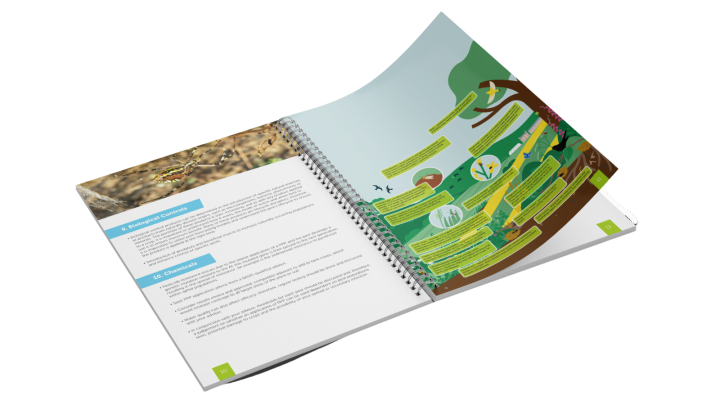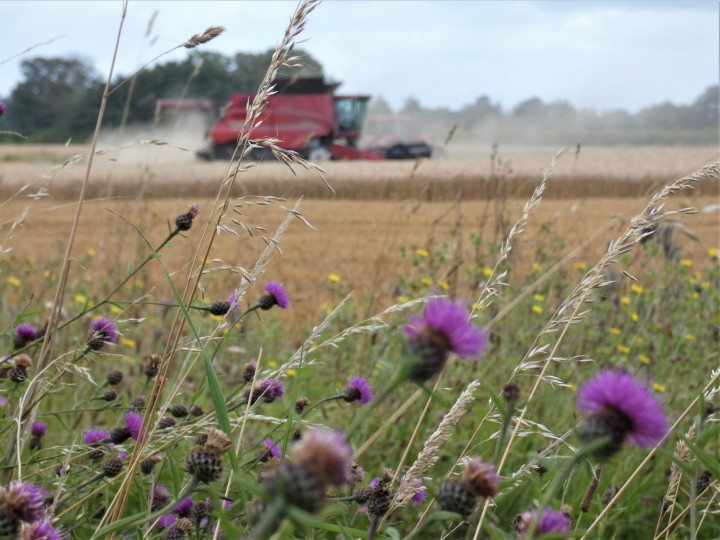In the face of a rapidly changing climate and significant biodiversity loss, farms can take a holistic approach to pest management by reducing the application of plant protection products and adopting practices that help build healthy, diverse farming ecosystems.

A Practical Guide to Integrated Pest Management

Read 'A Practical Guide to Integrated Pest Management'
Download
What is Integrated Pest Management?
Integrated Pest Management (IPM) is a holistic whole-farm approach to mitigate the likelihood of pest, weed and disease pressure in a farming system. The aim is to have a dynamic framework to operate within that:
Reduces reliance on plant protection products and minimises their risks to human health and the environment
Develop a range of techniques that enhance the farm ecosystem to encourage natural pest control
Reduce the use of prophylactic medications required in animal husbandry
An effective whole-farm integrated pest management strategy aims to reduce the reliance on plant protection products and, in turn, reduce the likelihood of pests developing resistance to active ingredients. Reliance on plant protection products also undermines a farm’s ecosystem, lessens its resilience to weeds, pests and diseases and eradicates the beneficial species we rely on for effective pest control. Some simple steps can be taken to mitigate the reliance on chemical control, all whilst producing quality, nutrient-dense food and rearing healthy livestock.

What does our Practical Guide to Integrated Pest Management cover?
Key Principles of Integrated Pest Management
Step-by-Step Guide
Key Examples of Actions
Key Species & Habitats - Beneficial Species
Key Species & Habitats - Pests
We hope the actions in this booklet will support you in identifying opportunities to tackle pests, weeds and diseases holistically while supporting farm habitats to thrive.
Read 'A Practical Guide to Integrated Pest Management'
Download
